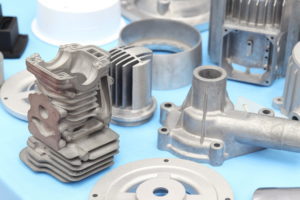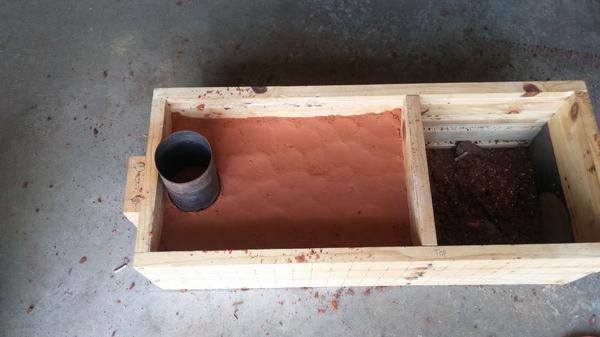Some Ideas on Alcast Company You Need To Know
Some Ideas on Alcast Company You Need To Know
Blog Article
Not known Facts About Alcast Company
Table of ContentsAlcast Company - An OverviewAn Unbiased View of Alcast CompanyAlcast Company - The FactsThe smart Trick of Alcast Company That Nobody is Talking AboutThe Buzz on Alcast CompanyAlcast Company Can Be Fun For Everyone
The subtle difference hinges on the chemical content. Chemical Comparison of Cast Aluminum Alloys Silicon advertises castability by lowering the alloy's melting temperature and enhancing fluidity during spreading. It plays a critical role in allowing complex mold and mildews to be filled up accurately. Additionally, silicon adds to the alloy's strength and put on resistance, making it important in applications where resilience is essential, such as vehicle parts and engine components.It also boosts the machinability of the alloy, making it less complicated to process right into completed products. In this means, iron adds to the general workability of aluminum alloys. Copper boosts electric conductivity, making it helpful in electrical applications. It additionally improves rust resistance and contributes to the alloy's overall strength.
Manganese adds to the toughness of light weight aluminum alloys and improves workability (Foundry). It is commonly made use of in wrought aluminum products like sheets, extrusions, and accounts. The existence of manganese help in the alloy's formability and resistance to cracking during manufacture processes. Magnesium is a lightweight aspect that gives strength and influence resistance to aluminum alloys.
Some Known Facts About Alcast Company.
It allows the production of light-weight elements with superb mechanical homes. Zinc enhances the castability of aluminum alloys and aids control the solidification procedure during spreading. It improves the alloy's toughness and firmness. It is frequently found in applications where elaborate forms and great details are needed, such as ornamental spreadings and specific auto parts.

The main thermal conductivity, tensile stamina, return strength, and elongation vary. Select appropriate raw materials according to the performance of the target product created. Amongst the above alloys, A356 has the greatest thermal conductivity, and A380 and ADC12 have the cheapest. The tensile limitation is the opposite. A360 has the most effective return strength and the highest prolongation price.
Alcast Company for Dummies

In precision spreading, 6063 is well-suited for applications where complex geometries and top notch surface area coatings are critical. Instances consist of telecommunication units, where the alloy's premium formability enables smooth and aesthetically pleasing designs while keeping architectural stability. Likewise, in the Illumination Solutions industry, precision-cast 6063 components produce elegant and efficient lights components that require detailed forms and good thermal efficiency.
It results in a finer surface coating and better corrosion resistance in A360. The A360 displays superior elongation, making it ideal for facility and thin-walled components. In accuracy spreading applications, A360 is well-suited for industries such as Customer Electronics, Telecommunication, and Power Devices. Its boosted fluidity enables complex, high-precision components like mobile phone casings and interaction device housings.
The Single Strategy To Use For Alcast Company
Its one-of-a-kind buildings make A360 a useful option for accuracy spreading in these markets, boosting item toughness and quality. Casting Foundry. Light weight aluminum alloy 380, or A380, is a widely made use of spreading alloy with numerous distinctive characteristics.
In accuracy spreading, light weight aluminum 413 beams in the Customer Electronics and Power Equipment industries. It's generally made use of to craft complex components like mobile phone housings, electronic camera bodies, and power device cases. Its accuracy is amazing, with tight tolerances up to 0.01 mm, making certain flawless product assembly. This alloy's premium corrosion resistance makes it a superb selection for exterior applications, guaranteeing lasting, long lasting products in the stated markets.
Some Of Alcast Company
The aluminum alloy you choose will substantially impact both the casting process and the residential or commercial properties of the final item. Since of this, you must make your choice very carefully and take an informed strategy.
Identifying the most ideal aluminum alloy for your application will suggest weighing a large range of features. The first classification addresses alloy characteristics that impact the manufacturing procedure.
Not known Facts About Alcast Company
The alloy you select for die spreading straight affects a number of facets of the casting procedure, like just how simple the alloy is to work with and if it is susceptible to casting defects. Warm cracking, additionally called solidification cracking, is a typical die spreading problem for aluminum alloys that can result in inner or surface-level splits or splits.
Certain light weight aluminum alloys are extra susceptible to warm breaking than others, and your choice should consider this. An additional typical problem found in the die casting of aluminum is die soldering, which is when the cast adheres to the die wall surfaces and makes internet ejection tough. It can harm both the actors and the die, so you should try to find alloys with high anti-soldering buildings.
Deterioration resistance, which is already a notable quality of aluminum, can differ significantly from alloy to alloy and is a vital characteristic to take into consideration depending upon the ecological conditions your item will be exposed to (Aluminum Castings). Put on resistance is one more residential or commercial property generally looked for in light weight aluminum products and can separate some alloys
Report this page